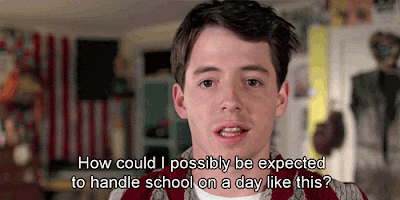Since their inception, superhero stories have generated passionate fans. Not only does the action make for good entertainment, but the concept of a superhero is also reassuring to audiences. The idea that someone could use special powers to bring about justice is comforting in that often we as normal citizens feel powerless in too many situations.
Christopher Nolan's 2008 film
The Dark Knight, depicts Batman as a hero who although does not technically have superpowers, still has the means to bring about justice for the city of Gotham. Following Nolan's 2005 film
Batman Begins,
The Dark Knight picks up Batman's story as he must defeat the infamous Joker while maintaining his secret identity as Bruce Wayne.
However, the thing that makes
The Dark Knight so appealing to viewers lies less in the idea of good conquering evil because let's face it—would you expect anything else from a superhero movie? Rather, this film puts a heavy focus on outlining the psychology behind good versus evil. Although Batman's character means well, he, like any good hero, has plenty of flaws that make Bruce Wayne/Batman a complex character, especially as his city declares him a vigilante rather than the hero he is trying to be.
Similarly, Harvey Dent, an acquaintance of Bruce Wayne's, displays this complexity through his actions as the District Attorney of Gotham. Dent rises to fame as a hero as he rounds up many the notorious criminals that plague the city. As Dent becomes known as a "White Knight" to the city, it appears that his sole purpose is enforcing justice. However, this film shows the relative ease with which people change their motives. In the case of Harvey Dent, the loss of his love interest, a burn across half his face, and an encounter with the Joker are enough to turn this once "White Knight" into the villain Two-Face who seeks revenge rather than justice.
While characters like Batman and Two-Face are intriguing because of their complexity, easily the most interesting character of the film is the Joker. From the beginning of the movie it is clear that the Joker does not play by the rules. Right off the bat, this lends the film to an unpredictable character in opposition with our hero. This unwillingness to play by anyone's rules other than his own creates a character that is both maniacal and clever, oddly demanding respect for this villain. While the Joker is the obvious bad guy, it is hard not to be impressed with the amount of chaos he able to conjure up. The Joker plays countless mind games on the police, civilians, and even those who work for him, acting as though he makes things up as he goes, but proving that each move has been carefully thought out.
While the Joker's character alone is interesting enough, Heath Ledger does a brilliant portrayal, complete with the iconic maniacal laughter that accompanies many of his most intense scenes. The Academy celebrated Ledger's performance by awarding him with the
Oscar for Best Performance of an Actor in a Supporting Role posthumously.
The actions of the Joker allow
The Dark Knight to put an emphasis on the psychology behind a supervillain in contrast to that of a superhero. Interestingly enough, both parties are willing to take responsibility for the harm caused to their city, but for different reasons. While the Joker thrives off the chaos, Batman recognizes that the people need someone to blame and is willing to be that figure if it means bringing justice in the end.
















